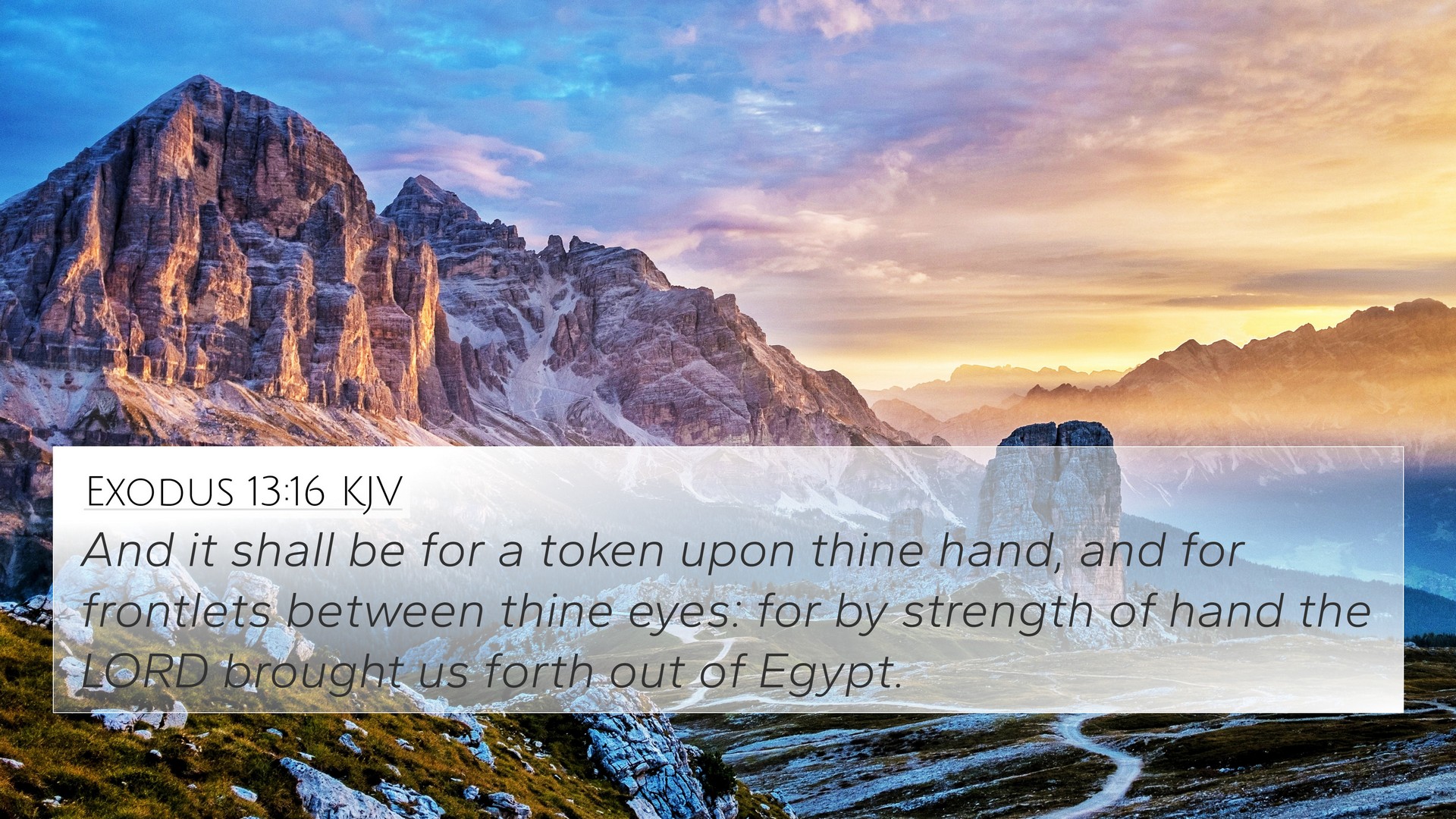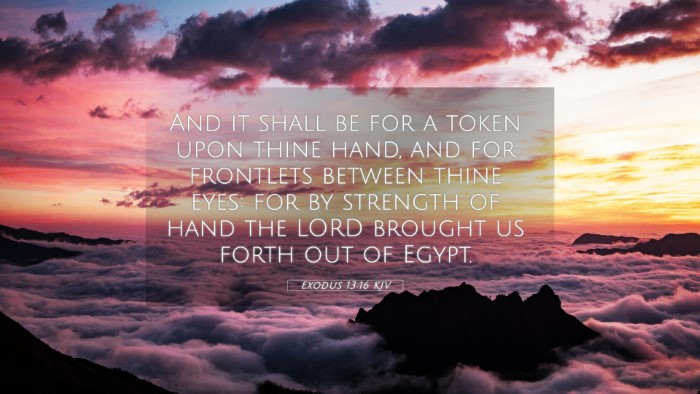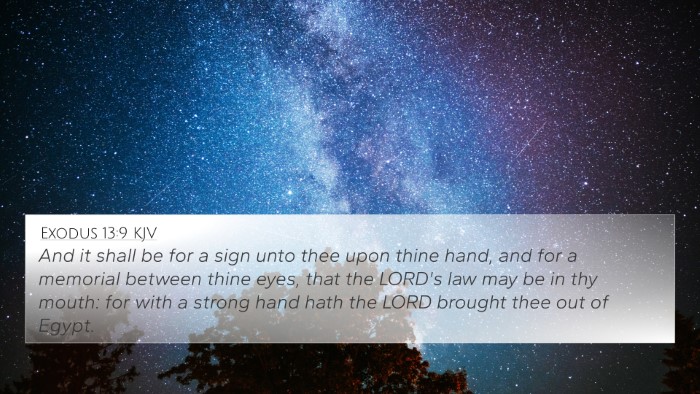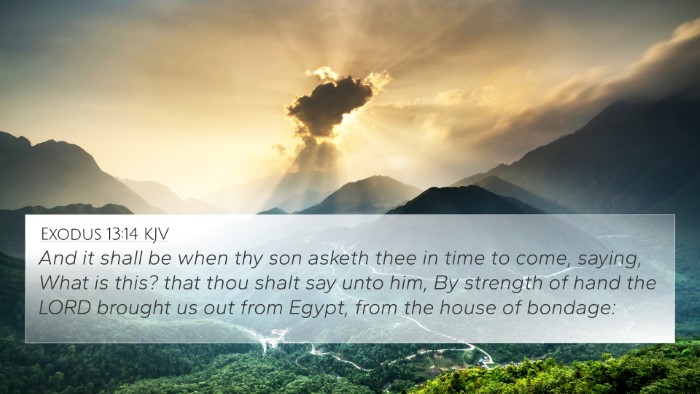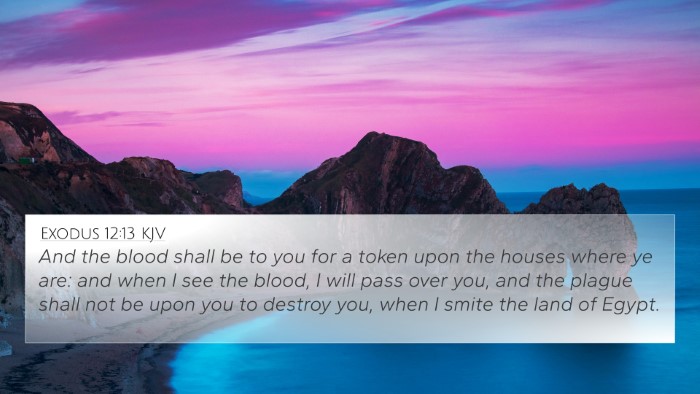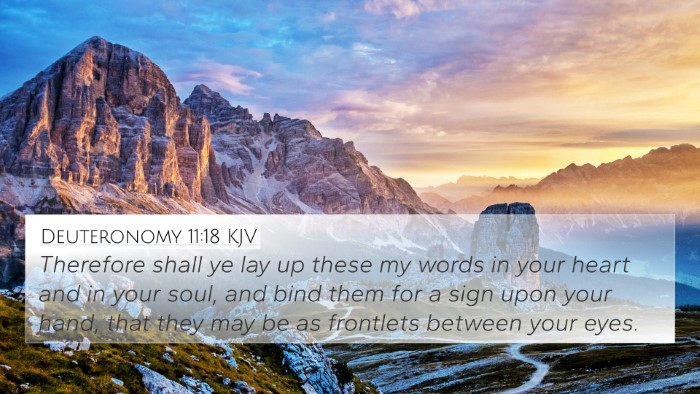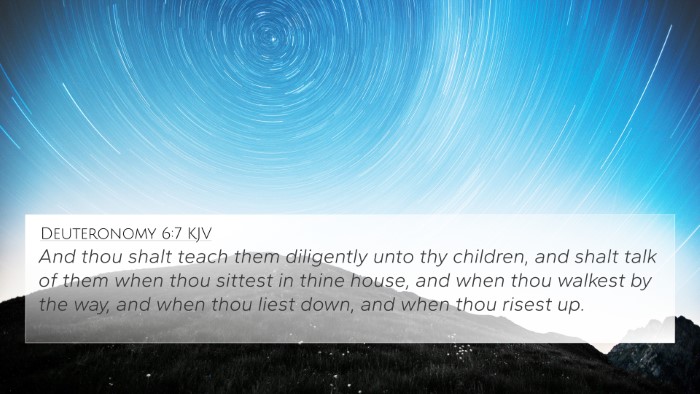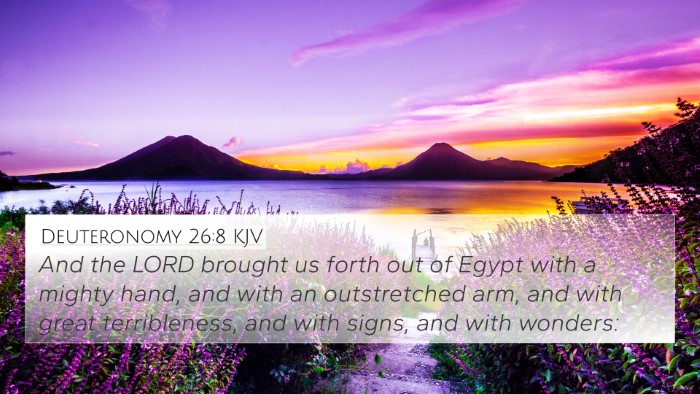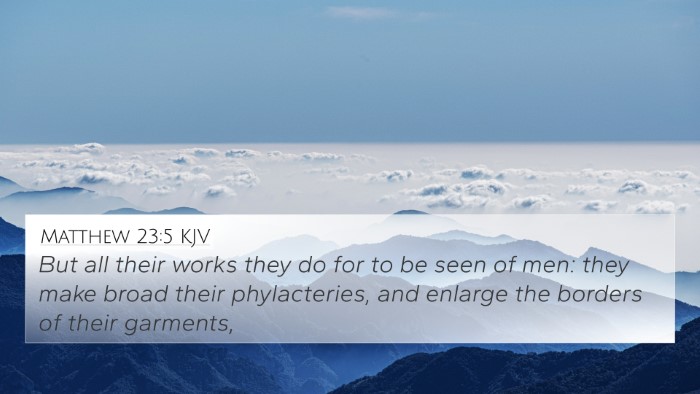Understanding Exodus 13:16
Exodus 13:16 states:
"And it shall be for a token upon thine hand, and for frontlets between thine eyes: for by strength of hand the LORD brought us forth out of Egypt."
Interpretation and Meaning
This verse emphasizes the importance of remembrance and the manifestation of faith in God’s deliverance of the Israelites from Egypt. The phrase describes the physical acts intended to serve as constant reminders of divine interventions in their lives.
Key Insights
- Divine Deliverance: The verse highlights the power of God’s deliverance, reminding believers of the miraculous redemption from bondage.
- Symbolism of Reminders: The act of binding these reminders on one's hands and foreheads emphasizes the necessity of keeping God's actions at the forefront of one’s thoughts and actions.
- Legacy of Faith: The physical symbols indicate a legacy of faith that God’s people must pass down through generations.
Connections with Commentaries
Various public domain commentaries provide rich insights into this verse:
- Matthew Henry: Henry emphasizes the significance of remembering God's works and making them a part of one's daily life, noting that such acts reinforce faith and inspire obedience.
- Albert Barnes: Barnes discusses the ritual significance of these physical reminders, indicating that they are symbolic of the deeper truths of God’s power and mercy that should govern the believer’s life.
- Adam Clarke: Clarke remarks on the metaphorical implications, linking the outward signs to internal faith and the importance of continuously acknowledging divine guidance and deliverance.
Bible Cross-References
This verse relates to several other scriptures that illustrate the themes of remembrance, obedience, and God's deliverance:
- Deuteronomy 6:8-9: "And thou shalt bind them for a sign upon thine hand, and they shall be as frontlets between thine eyes." This verse reiterates the practice of remembering God's commandments.
- Psalm 78:4: "We will not hide them from their children, showing to the generation to come the praises of the LORD." This verse speaks to the importance of passing down God's works.
- Joshua 4:6-7: "That this may be a sign among you, that when your children ask their fathers in time to come, saying, What mean ye by these stones?" This highlights the teaching aspect of remembrance.
- Matthew 26:26-29: In the New Testament, Jesus introduces the Communion as a way to remember His sacrifice, linking Old Testament practices with the New Covenant.
- Revelation 12:11: "And they overcame him by the blood of the Lamb, and by the word of their testimony." This exemplifies the continuous act of remembrance in the life of believers.
- Lamentations 3:20-22: "My soul hath them still in remembrance, and is humbled in me. This I recall to my mind, therefore have I hope." This aligns with the theme of remembrance bringing hope.
- 1 Corinthians 11:25-26: "This cup is the new testament in my blood: this do ye, as oft as ye drink it, in remembrance of me." This emphasizes the significance of remembering God's deeds.
Thematic Connections
The themes presented in Exodus 13:16 can be linked with various biblical motifs:
- Remembrance: The act of remembering God's grace is prevalent throughout scripture, urging believers to look back at His faithfulness.
- Physical Symbols of Faith: Many instances throughout the Bible utilize physical symbols (like circumcision or the Passover lamb) as constant reminders of God's covenant.
- Transgenerational Faith: The importance of passing down faith practices and memories reinforces community and identity within God's people.
Conclusions
Exodus 13:16 serves as a compelling reminder of the role of remembrance in the life of faith. The understanding and analysis of this verse, when cross-referenced with various scriptures, creates a deeper understanding of what it means to live in the light of God's deliverance. Through the connection of various texts, believers can find a richer tapestry of God's purpose as they cultivate their faith and share it across generations.
